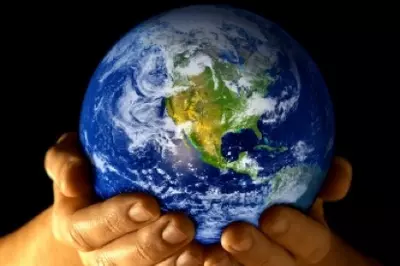
Each year on April 22, countries around the world take a day to appreciate our home, planet Earth. Earth Day began over 40 years ago, when a Wisconsin senator called for an "environmental teach-in" for the youth of the United States. The event quickly gained popularity across the globe and is now an annual international tradition. Public concern about the environment has increased considerably since the beginning of this tradition: the first Earth Day led to the creation of the United States Environmental Protection Agency and the passage of the Clean Air, Clean Water, and Endangered Species Acts.
All of which is good for us individually, because our bodies and minds are affected deeply by our surroundings. The quality of our environment can enhance or be a barrier to healing. Because of the interdependent nature of our relationship with the earth, it makes sense that we appreciate and preserve our natural resources.
How the environment affects health and wellbeing
The U.S. Environmental Protection Agency has found that the environment can directly affect our health and wellbeing. Conditions of poor air quality, such as smog, can contribute to respiratory and heart disease. Rising baseline temperatures can have a negative effect on the elderly, children, and those with heart disease or asthma. It doesn't take much pollution to harm humans, either. London's Great Smog of 1952 only clouded the city for four days, but 4,000 people died from respiratory difficulties associated with the poor air quality.
We can understand the interconnectedness between the environment's health and our own health in more basic ways, too. If we don't take care of the environment, we won't be able to use the environment for our own sustenance: when environmental changes affect agriculture, our food supply is threatened .
How you can make a difference
You can explore the Earth Hub on the Earth Day site, where you can make a pledge, take a quiz, and even download helpful toolkits. Simple changes in your everyday routine, such as bicycling instead of driving or recycling your plastic bottles, can make an impact on the earth's health. Educate yourself on sustainability and learn how interrelated all the choices you make really are. The University of Minnesota's Whole Systems Healing site has a Personal Action Checklist you can download to keep track of the commitments you have made to the wellbeing of the environment and yourself.